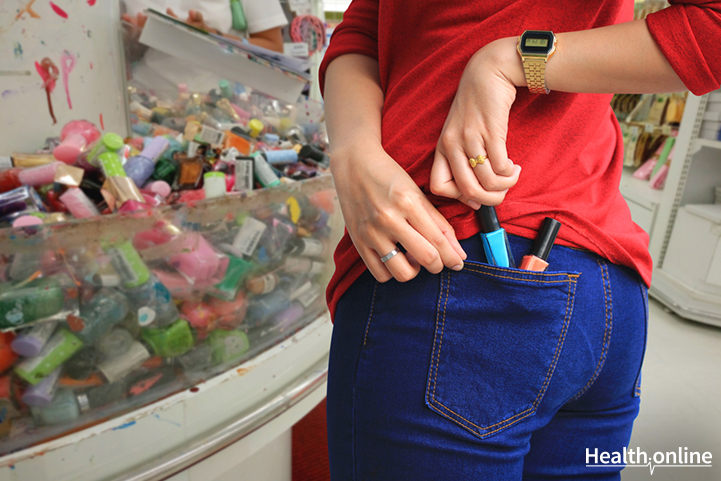
Kleptomania: What You Need to Know
Kleptomania is a type of mental health disorder. To define kleptomania precisely, it is a disorder that occurs due to lack of impulse control that results in repeated urges to steal. Just going by the kleptomania definition, it can seem more like a behavioral problem than a mental disorder. But it is a rare and complex disorder that stems from some emotional problem. The person is aware of the urge and it can often result in guilt. The stolen items are usually those that the person may not necessarily need. Kleptomania usually exists with other mental disorders such as depression, eating disorders or in people with addiction. It can cause a lot of emotional and mental anguish to anyone suffering from it and to their loved ones too.
Kleptomania Causes and Symptoms
Causes
The exact cause of kleptomania is not yet known. Preliminary research suggests that it can occur due to chemical changes in the brain. It can occur in people who may have problems with serotonin, which is a neurotransmitter (a brain chemical).When serotonin levels are low, it can result in problems with impulse control. In some people, the act of stealing may release dopamine (also a neurotransmitter). It increases pleasure sensation in the brain and a person may resort to the habit for the thrill of it.
It can also be genetic. People with mental disorders are susceptible to suffer from impulse control problems also.
Symptoms
The repeated urge to steal things that you don’t need is the most common symptom of kleptomania. Other symptoms can include increased anxiety before the act and feelings of intense pleasure right after stealing.
These feelings are often followed by guilt until the desire to steal returns. The act of the theft itself is not related to any anger issues or hallucinations. The stealing is also not motivated by necessity.
Recommended Read: Types & Symptoms of Anxiety Disorders
Diagnosis
It is uncommon to diagnose kleptomania on its own as people rarely seek treatment for it. A doctor or medical health practitioner may recognize the signs in someone who has come for treatment for any other mental condition. This is usually how the condition is diagnosed. If a family member is aware of the problem, they can ask the person to seek treatment. The shame attached to the act of stealing prevents people from seeking treatment. It can also be difficult for others to understand or accept that some stealing may be the result of impulse control and not motivated by a crime mindset.
Recommended Read: Motivational Interviewing What It Is And How It Can Help
Treatment
The treatment for kleptomania can include talk therapy to help with impulse control as well as to treat accompanying mental conditions. Talk therapy can focus on triggers that can give rise to urges to steal and ways to prevent them.
Other treatment options can include cognitive-behavioral therapy, which helps replace negative thoughts with positive messages. There can be other forms of psychotherapy too for treating the condition. Aversion therapy includes using painful techniques such as holding your breath when the urge to steal strikes. Covert sensitization is about imagining scenarios of consequences after act of stealing such as getting caught. Systematic desensitization includes relaxation techniques to control negative impulses.
Treatment can also include medications such as antidepressants and naltrexone, which is a drug that can help with urge control. There is no specific drug to treat kleptomania but these may help a bit.
Medical diagnosis and continued treatment can help prevent future occurrence of kleptomania. Relapses are quite possible. But once you understand your condition after undergoing psychotherapy, it is important to continue with the treatment and focus on making your life healthier with a positive mindset.
Keep yourself updated with the latest on Mental Wellbeing . Like us on Facebook and follow us on Twitter for more on Health , Diet & Nutrition and Healthy Aging . Also, check out our Health Tools and try out our health-related Quizzes .




